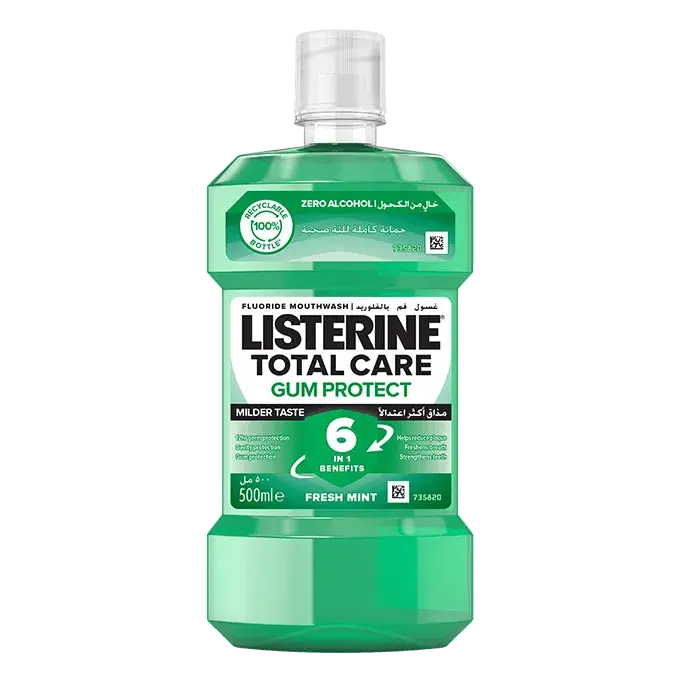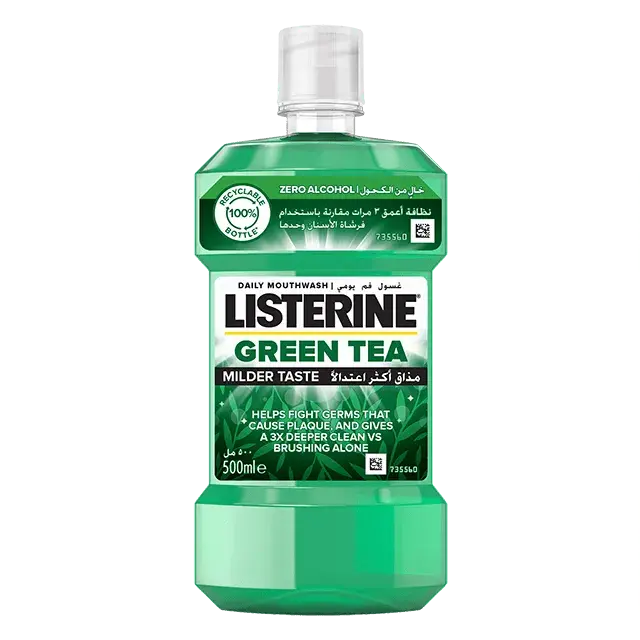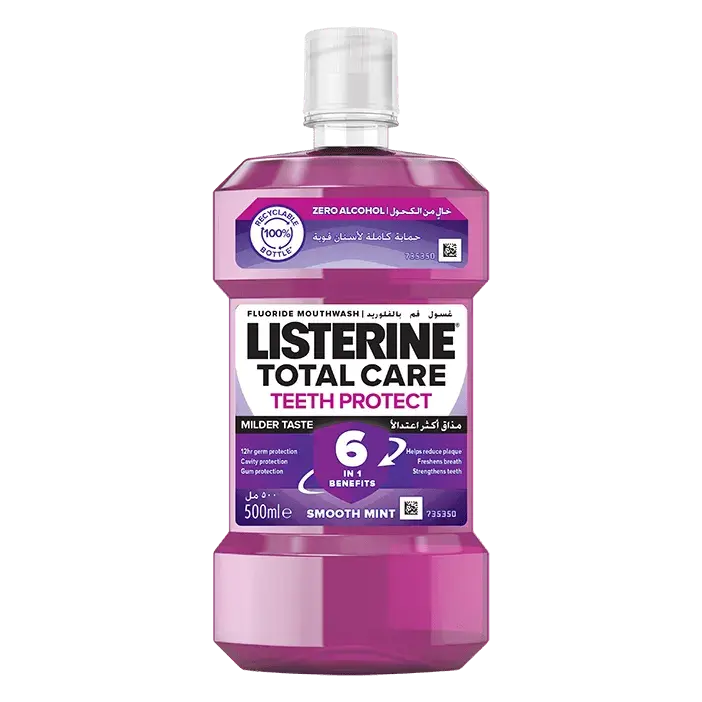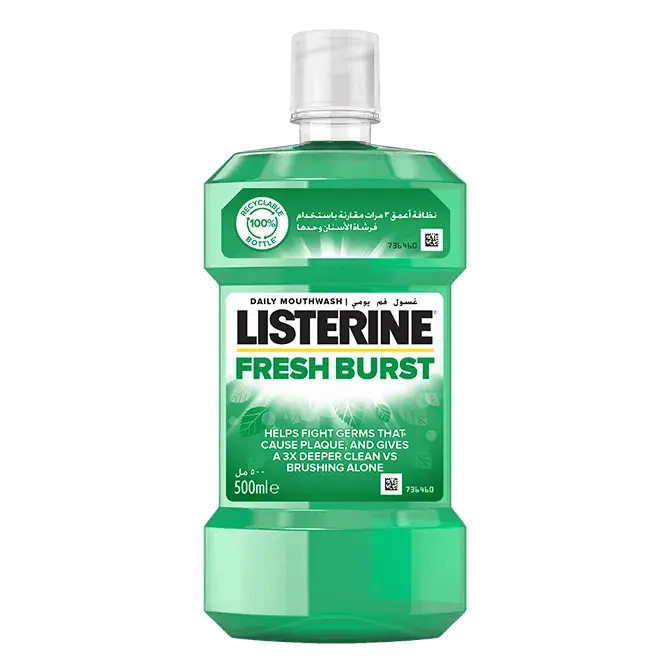Frequently Asked Questions
GINGIVITIS & PERIODONTITIS - FAQS
On almost any surface, a thin layer of bacteria known as biofilm can stick. That’s why your gums and teeth feel like they’ve been covered in slime when you wake up in the morning. Biofilm is normal;everyone gets it—even if you brush, floss and rinse with an antibacterial mouthwash. But if you don’t remove the biofilm on a daily basis, it can build and develop into dental plaque.
Dental plaque, which can contribute to gum problems, is bacterial buildup.
Someone with a healthy oral care routine, who brushes, flosses, and swishes daily, can control and minimize the size of the biofilm, and potentially make it even healthier. But when you clean and rinse your gums and teeth less frequently, biofilm (typically pale yellow in color) can harden and thicken into tartar and requires professional intervention to remove.
There are a lot of medical terms of ‘gum disease’, but what do they mean and how are they connected?
Gum disease is the broad-stroke, general term used to describe an infection in your gums. Both gingivitis and periodontitis are words used to describe gum disease—but they don’t mean the same thing.
Gingivitis describes early, mild (and reversible) gum disease, the kind marked by red, swollen gums that bleed easily when brushed or flossed.
If gingivitis is not addressed by improved mouth care, it can progress and develop into the more serious (non-reversible) stage of gum disease called periodontitis , which attacks gums, bone and the connective tissue that holds teeth in place, eventually loosening them over time to the point that they could fall out.
Gum disease is the leading cause of tooth loss. That’s why it’s best to address gum issues early by hammering down a foolproof rinse routine.
As we age, it’s increasingly common to see a drop or two of blood in the sink after brushing or flossing. It’s so common that many of us convince ourselves it’s not a big deal. But bleeding gums—even during a dentist cleaning—are not normal and not healthy. They’re a sign—possibly along with other often-missed symptoms like puffy, red, irritated gums—of gingivitis (early gum disease). 90% of the world population suffers from chronic gum disease, gum problems, yet only a very small fraction realizes it. But there is some good news: early-stage gum disease is reversible, through improved daily mouth care and more frequent visits to the dentist for plaque and tartar removal. But left ignored, bleeding gums can progress to serious gum infection (periodontitis) that attacks gums, erodes the jawbone and is the number-one reason for teeth fall out. If you’ve spotted droplets, don’t wait another day to start improving your brush, floss and rinse routine.
You’ve recognized one of the most telltale signs of mid-stage gum problems. And this is not one you want to ignore. When you notice your gum and bone pulling away from your teeth, and more of the lower part of your teeth becomes visible, your gums are receding. Often referred to as shrinking gums. When this happens, the roots of your teeth become exposed to harmful bacteria and your mouth becomes susceptible to a whole host of oral health issues. If accompanied by red, inflamed gums that bleed when brushing, early gum disease is the likely culprit. Left untreated, gum recession can have serious, irreversible consequences, such as loss of dentin (hard, dense, bony tissue forming the bulk of a tooth beneath the enamel and keeping your teeth firmly in place), and the exposed roots can become tender, sore or infected.
Always check the ingredients on your mouthwash bottle and look for germ-fighting ingredients that prevent gum disease, like LISTERINE® Teeth & Gum Defence mouthwash (which has eucalyptol, menthol, methyl salicylate and thymol — four essential oils that are clinically proven to fight germs that cause gum problems). It also contains fluoride to prevent cavities. Listerine® Teeth & Gum Defence is clinically proven to give you healthier gums and stronger teeth in 2 weeks! Using antibacterial mouthwash regularly will fight bacteria that can cling to your gums and form plaque. When plaque is not removed, it can harden into tartar.
It’s best to use LISTERINE® mouthwash twice daily, as directed. The combination of ingredients in Listerine® Total Care Gum Protect Milder Taste Mouthwash are effective in fighting bacteria above and below the gum line, helping prevent gum problems Don’t wait for gum disease to strike, take precaution with LISTERINE® Teeth & Gum Defence mouthwash twice daily for 24-hour protection from gum disease-causing bacteria.
CAVITIES & PLAQUE - FAQS
Tartar is basically plaque that has been left untreated and worsened into a harder surface on the teeth that only dentists can remove. Plaque is a thick film on teeth comprised of saliva and trapped food particles that build up on the gum line. If plaque is not removed every day by gentle brushing, flossing and rinsing with powerful LISTERINE® antiseptic mouthwash, it can harden into tartar. The acid from plaque can attack teeth soon after meals; if not cleaned away it can break through enamel and lead to a cavity. Plaque also harms gums and can lead to red, swollen and bleeding gums when brushed, or even lead to receding gums.
Tartar is hard and crusty and porous. It is yellow or brownish in color and appears on the gum line. Tartar is plaque that was not removed and has hardened from mineral deposits in saliva. Tartar buildup causes cavities, tooth decay and tooth loss as well as gum disease. It continues to grow and calcify if not removed. Tartar can only be removed from your teeth by dentists and their professional tools. Brushing, flossing, rinsing with LISTERINE® mouthwash and using tartar-control toothpaste can prevent this
Fluoride is a naturally occurring element known to prevent tooth decay when ingested or applied to teeth as a topical solution. Fluoride can help reduce the number of cavities in teeth. The acid in plaque leads to mineral loss in the tooth (demineralization), which leads to tooth decay. The formation of cavities, however, can be reversed by remineralization, or the deposit of minerals on damaged areas of the tooth. Application of topical fluoride can speed up this restoration of lost minerals.
When fluoride is ingested by the stomach and intestines, it is absorbed by the body to make teeth stronger. It is often found in drinking water in high enough quantities to reduce cavities, depending on which area of the country you are in (and whether you drink tap or filtered/bottled water). You can also get small amounts of fluoride by eating certain foods, such as spinach, carrots, asparagus, most seafood, tea and food prepared in fluoridated water, or by using a fluoride toothpaste and LISTERINE® fluoride mouthwash.
Yes, you should rinse your dentures and brush away food particles and debris twice daily. Use dental tablets that dissolve in water and soak dentures in the cleaning solution in a container. Always clean dentures over a soft towel or basin half full of water, as they can be slippery and easily break if they fall. Brush with a soft-bristle brush in lukewarm water. Thoroughly clean the denture. Rinse with LISTERINE® mouthwash afterwards to keep the mouth feeling fresh and clean. When not in your mouth, dentures should be soaked in mouthwash.
BAD BREATH - FAQS
Yes, persistent bad breath may be a byproduct of other medical conditions. Common ailments like acid reflux and heartburn could leave a bad taste in your mouth. In other cases, bacteria and mucus buildup from a sinus infection could be what’s causing the issue. Slightly fruity breath that isn’t wholly pleasant or offensive is a telltale sign of diabetes, while a strong, ammonia scent has been linked to kidney disease.
Periodontal diseases like gingivitis can cause bad breath because of the presence of excess bacteria in the mouth. And dry mouth, which causes a decrease in saliva, leaves your mouth unable to naturally flush bacteria and food particles from your teeth and gums before they break down and start to decay.
If you’re worried your bad breath might be a sign of a bigger issue, or if you’re just unable to tame it yourself by brushing, flossing and rinsing, talk to your dentist.
When it comes to habits that can cause bad breath, few rank higher than tobacco use. Just the act of smoking alone, not to mention the associated health risks, is enough to leave your mouth tasting—and smelling—like an ashtray. Having a high-sugar diet doesn’t help, either; the natural bacteria in your mouth will feast on the excess sugars and redecorate your teeth and gums with bacteria buildup. Carbohydrate-cutting diets can often double your chances of bad breath as your body increases its production of ammonia to try and metabolize food. People who fast or skip meals regularly run a different kind of risk: chewing helps stimulate saliva, which helps prevent your mouth from getting dry and smelling stale. When you stop for long periods of time, your breath can begin to smell. Dry mouth also affects people who regularly breathe through their mouths, putting them in the unenviable position of having bad breath. Finally, people who are overstressed can wind up having unpleasant breath.
Yes and no. Since bad breath is often caused by dry mouth, chewing sugar-free gum can be a great way to get those saliva glands going. Not only will it help to flush out bacteria, saliva also helps usher unwanted food particles from your mouth before they can break down in your mouth.
Gums, candies and mints that are loaded with sugar, however, are not going to help. They may mask the odor, but they’ll do little to actually kill the bacteria that are causing your breath to smell. That’s because the sugar sticks to your teeth and gums where it can both break down to cause additional odor and increase plaque buildup. More plaque equals even more bad breath.
Your best bet is to brush, floss and rinse twice daily. This will ensure your mouth is optimally clean.
Unless you’re rinsing with a garlic and blue cheese-flavored variety, no mouthwash will cause your breath to stink. In fact, studies show LISTERINE® Antiseptic Mouthwash may even help get saliva flowing faster, thereby preventing dry mouth (which is linked to bad breath). For best results use LISTERINE® mouthwash twice daily, as directed, for 24-hour protection from bacteria.
TOOTH SENSITIVITY - FAQS
Tooth sensitivity is usually a sharp intermittent zinging pain in response to cold air or food or drinks that are especially hot or cold or very sweet or sour. If you’re experiencing pain that is more severe and more constant, chances are it’s a different kind of mouth pain.
As the gums pull back, dentin becomes exposed and your teeth become less protected from sensations like hot and cold. While sensitive teeth don’t necessarily look that different, sensitive gums will turn red and may bleed. Unlike sensitive teeth, sensitive gums may not hurt that much at all. But the longer you ignore them, the worse for your teeth, so see your dentist as soon as possible.
It's critical to identify the cause of your sensitivity before making treatment recommendations. Your best solution would be to consult with your dentists immediately. You can attempt a few solutions up until your appointment to relieve the discomfort in the interim.
Use toothpaste with a numbing agent or a desensitizing toothpaste
Rinse with salt water
Apply products with hydrogen peroxide
Rinse with warm water and honey
Use turmeric
Apply Capsaicin
Use Green tea
Apply vanilla extract
Certain actions, such as eating, drinking, and brushing, might trigger sudden, momentary pain in your teeth if you have sensitive teeth. Usually, exposed tooth roots or damaged tooth enamel cause sensitive teeth. However, there are times when other problems, such as a cavity, a cracked or chipped tooth, a worn filling, or gum disease, are to blame for dental discomfort.
Consult your dentist if you suffer from sensitive teeth. To cure your teeth sensitivity, your dentist might recommend the following:
Toothpaste with desensitizers: Desensitizing toothpaste can occasionally assist in reducing dental pain after repeated applications. Numerous over-the-counter products are available.
Fluoride: To bolster tooth enamel and lessen pain, your dentist may administer fluoride to the sensitive parts of your teeth. Additionally, your dentist could advise applying prescription fluoride using a personalized tray at home.
Bonding. On occasion, sensitive root surfaces that have been exposed might be addressed by coating them in bonding resin. Perhaps a local anesthetic is required.
Gum graft surgery: A little piece of gum tissue from another part of your mouth can be retrieved and connected to the damaged area if your tooth root has lost gum tissue. This can lessen sensitivity and shield exposed roots.
A root canal: Your dentist may suggest a root canal to treat issues in the soft core of the tooth if your sensitive teeth are really painful and other treatments are ineffective (dental pulp). Despite the fact that this procedure may seem extensive, it is thought to be the most effective way to cure dental sensitivity.
Fortunately, you can take precautions to avoid or lessen dentinal hypersensitivity before, during, and after teeth whitening therapy.
At least one week prior to teeth whitening treatment, switch to a sensitive teeth toothpaste or gel. These specialized gels and toothpastes function by either obstructing the dentinal tubules' nerve terminals or by desensitizing them.
Use a teeth-whitening kit that you can use at home, and modify the application time based on how sensitive you are. Try performing more sessions but cutting the length of each session if you feel tooth sensitivity.
Ask your doctor to recommend a prescription-strength toothpaste or gel that is especially made to lessen sensitivity after teeth whitening. Use a soft-bristled toothbrush to gently brush your teeth before rinsing your mouth with warm water as opposed to cold. By letting the desensitizing toothpaste or gel linger in your mouth for a short while before washing, you will give it more time to act.
Avoid drinking hot or cold beverages because they can irritate your nerve endings and make you feel pain. Your teeth-whitening results will remain longer if you refrain from drinking specific liquids like coffee and tea.
Depending on the cause, tooth sensitivity can be managed and usually goes away.
After some dental operations, such as fillings, root canal therapy, or whitening, teeth may become particularly sensitive. In these cases, the sensitivity will typically subside on its own. The sooner a dentist can treat tooth discomfort, the better, depending on the circumstances
Even though teeth whitening is quite safe and efficient, it is typical to feel sensitive after the procedure. Although this sensitivity is only transient, it can nevertheless be uncomfortable for the first few days following your whitening procedure. Fortunately, you can take measures to lessen this sensitivity following tooth whitening:
Use a desensitizing toothpaste to brush
Apply a desensitizing gel
Taking painkillers
Avoid consuming hot or cold beverages
Eat and drink acid-free items
Gently brush
Use items with fluoride
Drink with a straw



